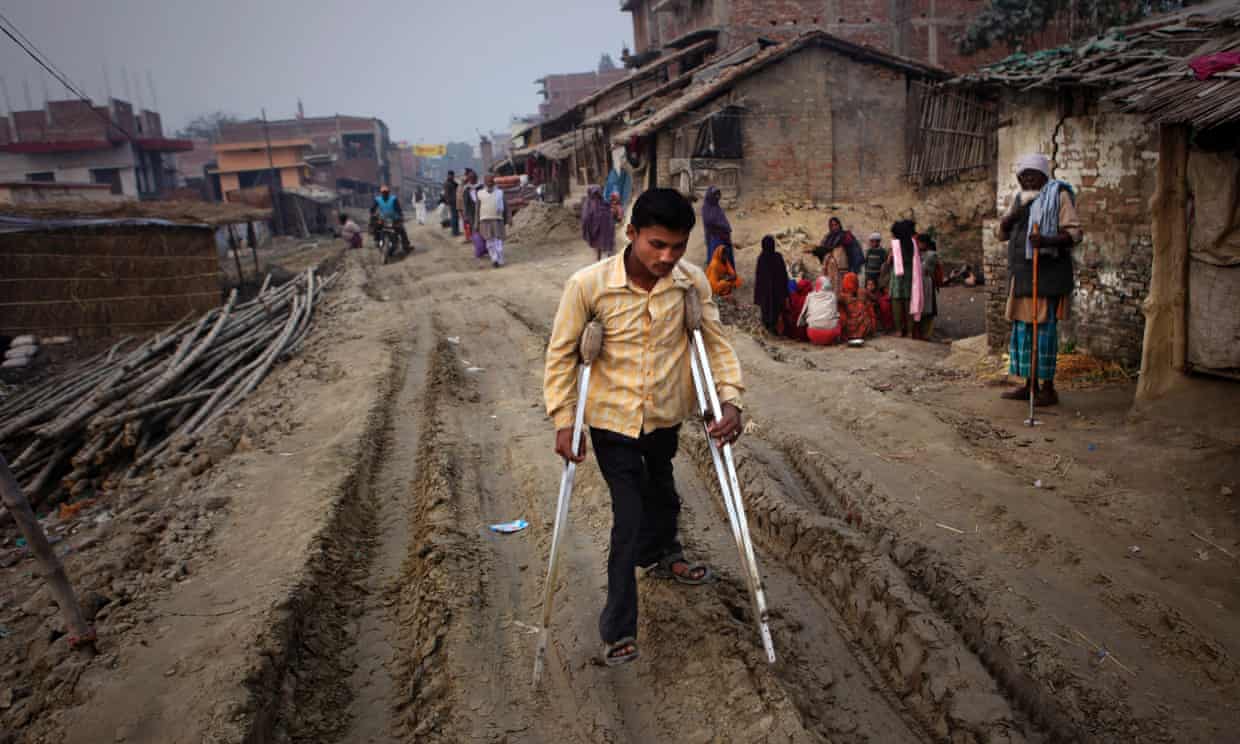| A child's main occupation is to be a child through playing and learning, thus what this occupational therapist is assisting this child in doing. |
There is no doubt that climate change has been caused by human activity. Unfortunately, these human activities are linked to what
occupational therapy calls ‘occupation’. Pay close attention to the use of occupation in the definition above. It's doing. It's driving. It's farming. It's expanding. It's got everything to do with climate change. Occupations are what have caused this ecological crisis. That's pretty crappy right? Here I am being all passionate about doing some good in the world and helping people through occupational therapy, and it goes almost directly against something else I am very passionate about, combating climate change.
On the flip side, this means that occupational therapy also can change that activities and occupations that are causing climate change. It may be a long stretch, but we as occupational therapist, the ones in charge of changing occupations, have the potential to change the way that people go about their everyday lives. In occupational therapy there is a focus on holistic health, or health of the whole being, rather than fixing an individual issue (as in physical therapy). And that is what we need in order to fix this giant problem that we call climate change. It is not caused by one specific thing, rather it is a variety of problems that have added together. (I found this wonderful piece in the Australian Occupational Therapy Journal.)
Surprisingly, as I was doing some research for this blog post, I found that the World Federation of Occupational Therapy recognizes climate change as an issue and threat to the well-being of individuals, groups, and the environment. It also supports the use of occupational therapy "in countries experiencing significant negative impact of climate change to focus their practice on the
adaptation of environmental needs". So in short, the World Federation of Occupational Therapy not only believes in climate change, they also believe that occupational therapy will be necessary to combat climate change as well. Farmers are not going to be able to farm in the same way that requires so many resources, they're going to have to adapt. We are not going to be able to travel in the way that we do now a days. We're going to have to adapt. And that is where occupational therapist come in.
While it may not be the mainstream area of solutions to help us learn to deal with climate change and combating what we do to cause it, I can foresee occupational therapists helping people adapt to the new way of living that will come with new conservation efforts and ways of combating and adapting to climate change (Sustainable Occupational Responses to Climate Change, Clinicians Respond to Climate Change). According to the Canadian Journal of Occupational Therapy (this article is really awesome), "occupational therapists have an ethical obligation to use professional reasoning strategies that, taken collectively, can help to build a sustainable and resilient future" and have "the power to initiate change in their personal actions, their workplaces, their communities, and their govern- ments to promote a sustainable and resilient future".
On the flip side, this means that occupational therapy also can change that activities and occupations that are causing climate change. It may be a long stretch, but we as occupational therapist, the ones in charge of changing occupations, have the potential to change the way that people go about their everyday lives. In occupational therapy there is a focus on holistic health, or health of the whole being, rather than fixing an individual issue (as in physical therapy). And that is what we need in order to fix this giant problem that we call climate change. It is not caused by one specific thing, rather it is a variety of problems that have added together. (I found this wonderful piece in the Australian Occupational Therapy Journal.)
 |
| An occupational therapist could assist this man in creating different crutches that could navigate through the muddy terrain of his village that has been affected by climate change. |
While it may not be the mainstream area of solutions to help us learn to deal with climate change and combating what we do to cause it, I can foresee occupational therapists helping people adapt to the new way of living that will come with new conservation efforts and ways of combating and adapting to climate change (Sustainable Occupational Responses to Climate Change, Clinicians Respond to Climate Change). According to the Canadian Journal of Occupational Therapy (this article is really awesome), "occupational therapists have an ethical obligation to use professional reasoning strategies that, taken collectively, can help to build a sustainable and resilient future" and have "the power to initiate change in their personal actions, their workplaces, their communities, and their govern- ments to promote a sustainable and resilient future".
Interesting to see where the professional organization stands! I am glad to see there is a role in addressing the problem as well as being part of the mitigation.
ReplyDeleteOccupational Therapy has been an ongoing demand in the work force. Quite impressive!
ReplyDeleteThis seems like a really interesting perspective of OT with Climate Change. I definitely didn't think about any relationship before but it makes sense!
ReplyDeleteIt's great to hear that even an occupation that one would seem not to be related to climate change is still addressing it as a problem and doing their part to help.
ReplyDeleteThis blog beautifully encapsulates the essence of occupational therapy - it's not just about what we do, but how it shapes our lives. Climate change presents unique challenges that affect our daily activities and roles. Understanding how occupational therapy can adapt to these changes is crucial. Seeking guidance from experts, like those in Albury Wodonga occupational therapy, can help individuals navigate these challenges and maintain their quality of life.
ReplyDelete